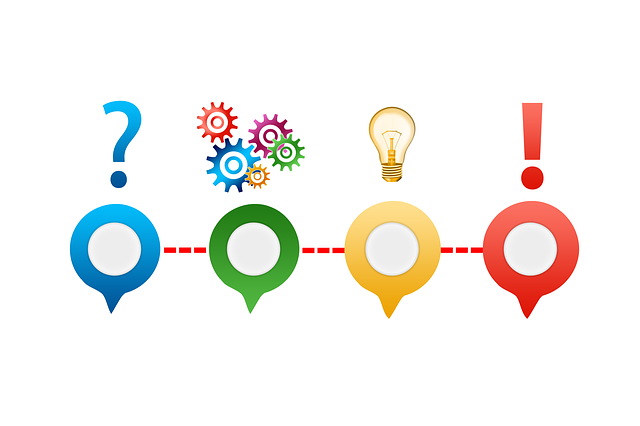Collaborative divorce solutions offer a peaceful alternative to litigation, using guided mediation and coaching sessions led by trained professionals to help couples reach mutually agreeable outcomes regarding child custody, asset division, and financial arrangements. This approach saves time and legal fees, empowers individuals, and fosters a more positive transition during separation, utilizing local mediator search tools for qualified specialists in collaborative divorce solutions.
Amicable divorce solutions are transforming the way couples part ways, offering a peaceful alternative to bitter litigation. By prioritizing open communication and guided mediation, spouses can achieve collaborative resolutions without escalating tensions. This article explores the benefits of amicable divorce, from emotional coaching to cost-effective outcomes. Discover how these innovative approaches facilitate mutual agreements, promote positive co-parenting, and create a less traumatic transition for all involved. Embrace a new era of divorce where cooperation prevails.
- Understanding Collaborative Divorce: A Peaceful Approach
- Benefits of Guided Mediation for Spouses
- Coaching for Emotional Support During Divorce
- Avoiding Litigation: Cost-Effective and Less Traumatic
- Building a Mutual Agreement Through Open Communication
- Post-Divorce Co-Parenting: Cultivating Positive Relationships
Understanding Collaborative Divorce: A Peaceful Approach

Collaborative divorce solutions are a peaceful and collaborative approach where spouses work together to achieve a mutually acceptable resolution, avoiding the adversarial nature of litigation. Instead of going through a stressful legal battle, couples opt for guided mediation and coaching sessions facilitated by trained professionals, often referred to as neighborhood mediators or local mediators. This method encourages open communication and understanding, allowing each party to have a say in decisions regarding their future, including child custody, asset division, and financial arrangements.
By choosing community divorce mediation, spouses can maintain a respectful relationship while navigating the complexities of their separation. Local mediator search tools can help couples find qualified professionals in their area who specialize in collaborative divorce solutions. This approach not only saves time and legal fees but also fosters a sense of control and empowerment, enabling individuals to move forward with their lives in a more positive and constructive manner.
Benefits of Guided Mediation for Spouses

Guided mediation offers a host of benefits for spouses looking to navigate their divorce amicably. By involving a neutral third-party, often referred to as a neighborhood mediator, couples can engage in open and honest communication while keeping the focus on reaching mutually agreeable solutions. This collaborative divorce solution helps to mitigate the emotional and financial strain typically associated with litigation, allowing for a more peaceful and less contentious separation process.
Unlike traditional divorce help near me that can often feel like a battle, guided mediation encourages active participation from both parties. The local mediator facilitates discussions, helping spouses to identify shared goals and explore creative options. This approach not only streamlines the legal process but also fosters a sense of control and ownership over the outcome, which is particularly beneficial for those seeking a fresh start after their separation.
Coaching for Emotional Support During Divorce

During a divorce, emotions can run high, making it challenging for spouses to communicate effectively and make rational decisions. This is where coaching comes in as an invaluable tool within collaborative divorce solutions. Professional coaches provide emotional support tailored to each individual’s needs, helping them navigate the complex feelings associated with ending a marriage. Through one-on-one sessions, coaches offer a safe space to express emotions, process grief, and gain clarity on personal goals.
With the help of a coach, individuals can develop coping strategies, enhance self-awareness, and improve their ability to engage in constructive conversations with their spouse. This emotional support is particularly beneficial for those seeking a less adversarial approach, like community divorce mediation or neighborhood mediators, where cooperation and mutual understanding are key to reaching peaceful resolutions. Coaching ensures that both parties have the tools to manage stress and maintain dignity throughout the process, fostering an environment conducive to collaborative divorce solutions.
Avoiding Litigation: Cost-Effective and Less Traumatic

When considering a divorce, many couples initially think of litigation as the only path forward. However, this traditional approach can be costly and emotionally draining. By opting for collaborative divorce solutions, such as guided mediation and coaching, spouses can navigate their separation in a more peaceful and cost-effective manner. This alternative route avoids the adversarial nature of court battles, allowing couples to maintain a sense of respect and dignity throughout the process.
Local family law help and neighborhood mediators play a pivotal role in these collaborative divorce solutions. They provide an impartial third party who facilitates open communication between spouses, helping them reach mutually agreeable terms. Community divorce mediation centers often offer this service, fostering an environment where couples can resolve disputes amicably and efficiently without the stress of litigation.
Building a Mutual Agreement Through Open Communication

In the pursuit of a peaceful divorce, open communication becomes an indispensable tool for couples seeking collaborative divorce solutions. When spouses engage in honest and transparent dialogue, they can uncover shared goals and interests that may have been previously overlooked or misunderstood. This process facilitates the development of a mutual agreement, where both parties feel heard and respected. By fostering an environment free from accusations and defensiveness, guided mediation allows couples to navigate complex issues like asset division, child custody, and spousal support collaboratively, ultimately leading to more satisfactory outcomes.
Seeking divorce help near me or exploring local family law resources can guide spouses towards community divorce mediation services, offering a cost-effective and less contentious alternative to litigation. These collaborative approaches not only ease the emotional strain but also empower couples to maintain a sense of dignity and control throughout the process. Through active listening and constructive discussions, spouses can co-create a post-divorce life that meets the individual needs of each partner while prioritizing the well-being of any children involved.
Post-Divorce Co-Parenting: Cultivating Positive Relationships

After a divorce, co-parenting becomes an essential aspect for former spouses who share children. Collaborative divorce solutions encourage a peaceful and cooperative approach to this new phase, fostering positive relationships between parents. By involving guided mediation and coaching, these processes help parents navigate post-divorce dynamics with respect and understanding. This is crucial in maintaining a stable environment for the children, ensuring they remain unaffected by the separation.
Local family law help and neighborhood mediators can play a pivotal role in facilitating these interactions. A local mediator search might lead to finding a professional who specializes in co-parenting guidance. These experts provide tools and strategies to manage shared custody effectively, fostering open communication and mutual respect. Ultimately, this collaborative approach ensures that both parents remain involved and supportive, creating a harmonious atmosphere for their children’s well-being.
